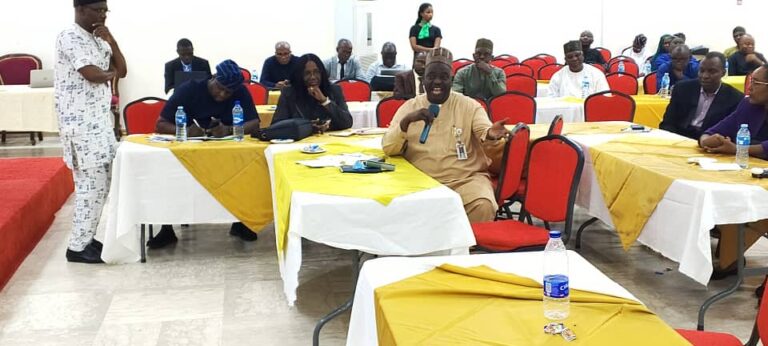FG Adopts Digital Inventory to Stem Drug Shortages in Hospitals

The federal government has introduced digital drug inventories to check shortages of essential drugs in hospitals.
This initiative was introduced during a stakeholders’ engagement in Abuja, as detailed in a statement by Alaba Balogun, Deputy Director and Head of Information & Public Relations, Federal Ministry of Health & Social Welfare, on September 13, 2025.
At the event, the Permanent Secretary of the Ministry, Daju Kachollom, articulated that the model aligns with the national strategy for managing the supply chain of essential drugs.
She emphasized the primary objective is to ensure the availability and affordability of essential medications in public hospitals.
She implored pertinent departments and regulatory bodies to collaborate in bridging gaps within the medicine supply chain.
“However, in all our endeavors, we must never lose sight of our mission at the Federal Ministry of Health & Social Welfare: to save lives. Above all else, save lives. Alleviate both physical and financial suffering, and foster health for all Nigerians,” Kachollom asserted.
Digitalization to enhance service delivery
Dr. Salaudeen Jimoh mni, Director of the Hospital Services Department, stated that the initiative would curtail expenses and augment nationwide drug availability.
“Once we embark on this partnership, it will undoubtedly be beneficial for all Nigerians. The aim is to fortify service delivery, implement a digitalized consignment model for essential medicines, and foster stakeholder collaboration,” he proclaimed.
Pharmacist Yakubu James, representing the Director of the Food and Drugs Services Department, remarked that the engagement is part of efforts to synchronize with the national strategy for essential drug supply chain management.
Hospitals voice concerns over drug procurement delays
Chairman of the Chief Medical Directors (CMDs) Committee, Prof. Eme Bassey, lauded the government’s initiative but underscored the challenges hospitals face in managing fluctuating drug inventories and urgent patient needs.
“We must question what occurs with drugs urgently needed when processes are protracted. Transparency is vital, yet we must also contend with the realities at hand,” he cautioned.
The Federal Government expressed confidence that, with stakeholders’ support, the digital inventory model would revolutionize the management of essential medicines in the nation. Officials asserted that this approach would not only ensure consistent availability but also enhance affordability, propelling Nigeria toward universal health coverage.
Pharmacists across Nigeria persistently advocate for the establishment of a N600 billion Pharmaceutical Manufacturing Development Fund to bolster local drug production and fortify the nation’s medicine supply chain. The proposed fund, with a 5% interest rate and a tenure of seven to ten years, is anticipated to support the domestic production of Active Pharmaceutical Ingredients (APIs), vaccines, critical supply chain interventions, and research and development.
Industry leaders have consistently emphasized that the lack of such long-term funding impedes efforts to expand domestic production.
Stakeholders further linked the issue of drug affordability to Nigeria’s health insurance system, stressing that an effective national health insurance framework would alleviate the financial burden of healthcare for Nigerians and enhance equitable access to essential medicines.









